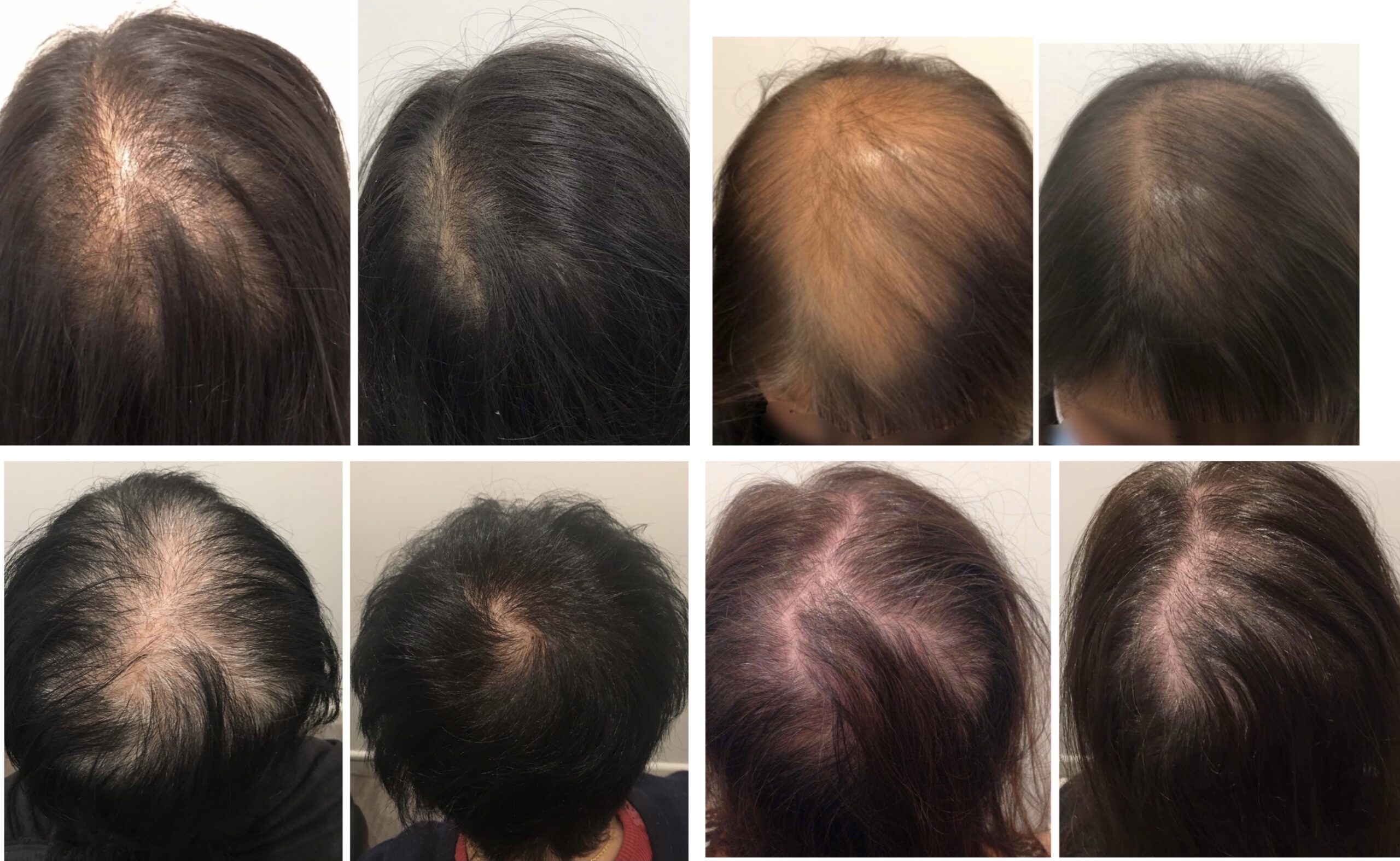Why it happens and what you can do to continue feeling confident, happy and healthy.
Menopause is a natural process that all women go through, usually around the age of 50. It is a time when your body starts to stop producing estrogen and other hormones, which triggers a cascade of changes in your body. The result is that you experience hot flushes, night sweats and other uncomfortable symptoms until your hormone levels stabilise. Menopause doesn’t just affect your fertility but also impacts your hair. Hair loss in peri menopause and hair loss in menopause are common concerns. Read on to understand more about why hair gets thinner when you hit menopause, what causes hair loss during menopause and how you can prevent or manage it effectively.
Why does hair get thinner when you hit menopause?
One of the most common questions we receive at Hair and Skin Science is “why does hair get thinner when you hit menopause?” To understand this, you need to know that every strand of hair on your head is in a constant state of change and renewal. While around 90% of the hair on your head is in the growing phase of its cycle, some 10% are in the transitional or shedding phase. The average person loses around 50-100 strands of hair every day. During the menopause transition and peri menopause stages, a sudden fall in estrogen levels leads to lower progesterone levels. This, in turn, causes your hair follicles to become thinner and shorter, resulting in hair loss. If you have been experiencing mild hair loss or thinning hair for an extended period of time, menopause is likely the culprit.
How to prevent hair loss during menopause?
There are a number of ways you can prevent hair loss during menopause. While you can’t reverse the process or slow down the rate of hair loss, you can try to maintain your current hair length. Make sure that you are taking care of your hair. Get a regular hair check-up and follow your hairdresser’s advice. Also, keep a track of what you are eating and drinking. Avoid excess caffeine, alcohol and sugar as they can cause hair breakage. Finally, you can also consider using herbal supplements to regulate your hormone levels. Saw Palmetto is a herbal extract that can help reduce the levels of male hormones in your body, which in turn can help slow down hair loss. Folic acid and iron supplements can also help improve your hair strength so it may be worth exploring taking a number of supplements.
Tips for managing hair loss during menopause
If you have been experiencing hair loss for a few months, you can try a few remedies to manage it. Avoid chemical processes like dyeing or perming your hair. Instead, go for a low-maintenance, natural look that is easy to maintain. You can also try using a biotin supplement or applying coconut oil to your hair. Biotin (also known as Vitamin B7) is a natural compound that is used in the production of keratin, the protein present in hair. When your body’s levels of biotin are low, you may notice increased hair fall. Coconut oil is an excellent way to nourish your hair and combat hair loss. Massage coconut oil into your scalp twice a week to stimulate blood flow and promote hair growth. Take an iron and folic acid supplement daily to strengthen your hair.
PRP treatment for hair loss in menopausal women
If you have been experiencing hair loss for a few months and are following the above-mentioned remedies but they haven’t given you the results you were expecting, you may want to consider PRP treatment for hair loss in menopausal women. PRP stands for platelet-rich plasma and is a non-surgical procedure that uses your body’s own blood to grow new hair. PRP treatment consists of taking a sample of your blood, separating it into its various components and then injecting it back into your scalp. This helps in triggering new hair growth and with restoring hair health. If you are experiencing hair loss as a result of menopause, PRP treatment can help you regain your lost confidence. To learn more about how this treatment works, visit https://www.hairandskinscience.com.au .


